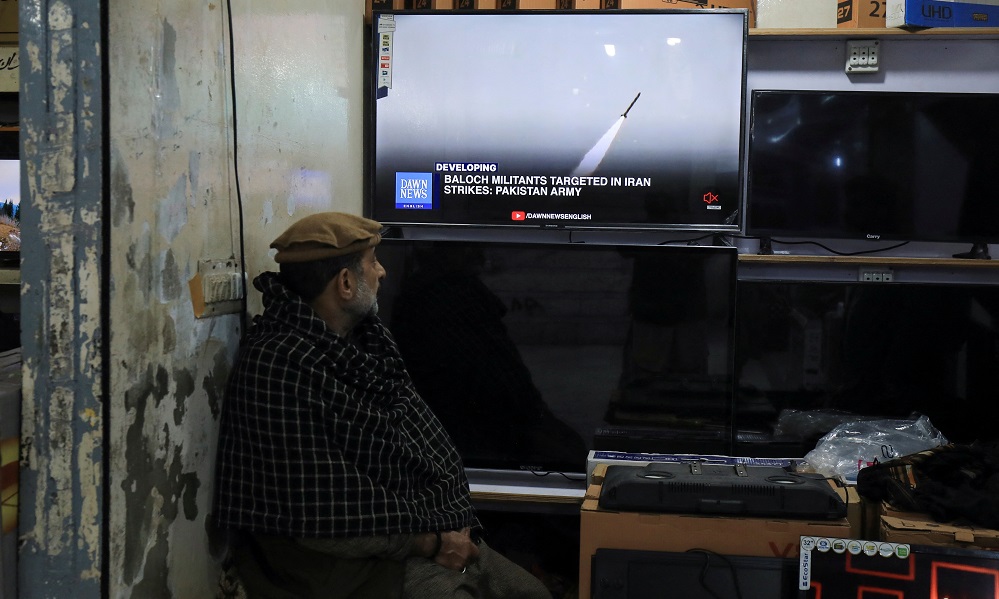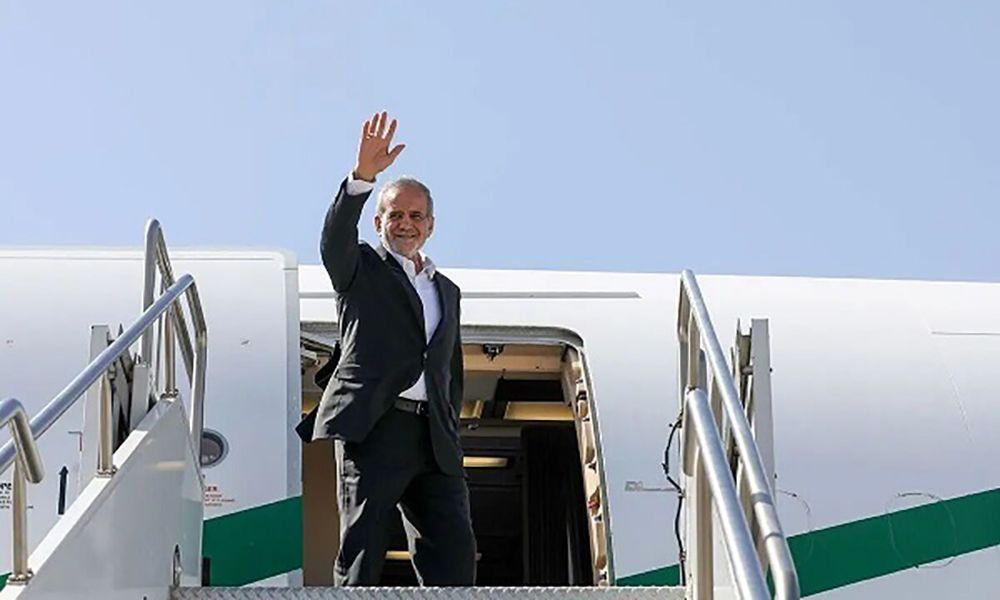Pakistan expressed its willingness to work with Iran on "all issues" in a call between their foreign ministers on Friday after both countries exchanged drone and missile strikes on militant bases on each other's territory.
The tit-for-tat strikes by the two countries are the highest-profile cross-border intrusions in recent years and have raised alarm about wider instability in the region since the war between Israel and Hamas erupted on Oct. 7, Reuters reported.
However, while Iran and Pakistan have a history of rocky relations, both sides have already signalled a desire to cool tensions.
A statement from Pakistan's foreign office said Foreign Minister Jalil Abbas Jilani had spoken to his Iranian counterpart, Hossein Amirabdollahian, on Friday, a day after Pakistan carried out strikes in Iran.
Iran said Thursday's strikes killed nine people in a border village on its territory, including four children. Pakistan said the Iranian attack on Tuesday killed two children.
"Foreign Minister Jilani expressed Pakistan’s readiness to work with Iran on all issues based on spirit of mutual trust and cooperation," the statement said. "He underscored the need for closer cooperation on security issues."
'MINOR IRRITANTS'
The contact follows a call between Jilani and his Turkish counterpart in which Islamabad said "Pakistan has no interest or desire in escalation".
Amirabdollahian, in comments quoted by Iran's state media, said: "Pakistan's sovereignty and territorial integrity are of great interest to us and bilateral cooperation is essential to neutralise and destroy terrorist camps on Pakistani soil."
The contacts came as Pakistan's Caretaker Prime Minister Anwaar ul Haq Kakar convened a meeting of the National Security Committee, with all military services chiefs in attendance. Kakar had cut short a visit to the World Economic Forum in Davos and flew home on Thursday.
The meeting concluded that "the two countries would mutually be able to overcome minor irritants through dialogue and diplomacy and pave the way to further deepen their historic relations", according to a statement from the Prime Minister's Office.
However, it also resolved that any attempts to breach the territory of Pakistan "will be responded with full might of the state".
It urged Iran to use existing communication channels to address security concerns.
Kakar told a cabinet meeting following the security huddle that it was in the "interest of both countries" to return to relations as they stood before Iran's strikes, another statement said.
Pakistan had recalled its ambassador from Tehran and had not allowed Iran's ambassador to return to Islamabad.
Pakistani broadcaster Geo TV, citing sources, reported that the cabinet had decided to end a standoff and also endorsed a move to re-establish full diplomatic relations with Iran.












































